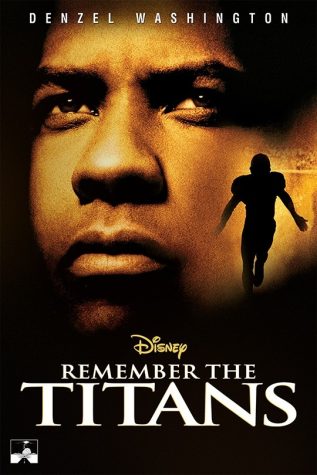ALBUM REVIEW: Flawed Design

In recent years, there have been few vocalists in the realm of modern rock who could be considered a “household” name.
Out of the hundreds of faceless voices heard on the radio, there have only been a handful who have made enough waves in the industry to become a creative force in their own right.
One such of these voices belongs to Adam Gontier, former vocalist of Three Days Grace, and current vocalist of Saint Asonia.
In the early 2000s, Three Days Grace made a name for themselves with hits like “I Hate Everything About You,” “Animal I Have Become” and “Never Too Late,” which is arguably their biggest hit.
Three Days Grace was on a musical roll, so it came as quite a shock when Gontier unexpectedly left the band in early 2013 for reasons that are still unknown.
That wasn’t the end of Gontier’s career; however, for he soon formed the “super group” Saint Asonia in 2015.
Saint Asonia’s debut was met with mixed reviews, to say the least.
Some liked it, some didn’t.
Personally, I thought it was musical Cheez Whiz.
Anyway, their sophomore album Flawed Design was released four years later in 2019, and is hailed by many as a musical “return to form” for Gontier.
With that in mind, I went into this album with high hopes…
And I’d be lying if I said I wasn’t disappointed.
Starting from the album cover, with a man meditating whilst overlooking an apocalyptic scene of ruined, decrepit skyscrapers and a crashed derelict airplane.
I get it, I really do.
It’s about finding harmony amid chaos and that sort of thing.
But it’s generic and heavy-handed.
Although, considering worldly events, it appears to still be a timely message.
In this lineup of songs, all of the choruses sound the same with their soaring vocals, instruments, and the vocal effect they applied to Gontier’s voice to make him sound ethereal.
Now, you may be saying to yourself “But, Rob, soaring vocals and guitars? That sounds awesome! You just like to complain.”
I do like to complain, and they are awesome… but they really lose their luster when you hear it 11 times in a row.
It makes the album feel less like a collection of individual songs, and more like one long song.
And that gets tiring to listen to.
Variety is the spice of life, dear readers.
While I’m on the topic of the songs, there are a couple guest features on this album.
One of them is by Sharon den Adel on a song called “Sirens.”
I’ll be honest, if you showed me that song without telling me who it’s by, I’d swear it was a Skillet song.
The lyrics are that basic.
I honestly can’t think of another word to describe it; they’re just unremarkable.
I can’t muster up any real feeling about it aside from meager indifference.
And that’s an album-wide problem.
Now, there are a lot of interesting ideas this album presents, such as not being able to find your place in the world despite growing older and wiser.
Or struggling to stay on the right path in the face of your own flaws.
These ideas sound like they’d make great songs to listen to, but that’s not the case.
Gontier has a lot to say, but he really doesn’t say much.
The verses in each song are written well enough for the most part.
But the majority of the choruses are written very simply.
There were times I juxtaposed them in a Word document and thought they were written by different people.
It’s just jarring listening to a verse that puts forth some interesting wordplay and melody to be pushed into a bland cookie-cutter chorus.
And as far as instrumentation goes, they sound nice, but they’re ultimately forgettable.
I’ve listened to this album what feels like a 100 times and I can’t remember anything notable.
Once a song is over, it’s like the memory of it is erased from my head.
That sounds like an exaggeration, but it’s not.
Even from the more memorable songs, I can’t recall much of anything.
Alright, I’ve been ragging on the album for a bit now and making it seem like there’s nothing redeemable, but there are a few embers in this dying fire.
A couple of songs really stand out here. Specifically “This August Day.”
Gontier works in a catchy melody during the verses, and while it follows the same choral pattern as every other song, it retains the same quality throughout its entirety.
It piqued my interest enough for me to replay it a few times.
Another song that I thought stood out is “The Hunted,” the lead single.
This song features Sully Erna, and the focus here goes to the vocals.
Gontier and Erna’s vocals sound similar, but when they sing their respective choruses, you can hear the different inflections they put on the words.
Instead of them trying to purposefully sound like each other or have one do all of the heavy lifting, they let the other sing as if it were their own song.
That impressed me. Thumbs up.
But while there are a few standouts, it’s all things the average listener has heard a 100 times before.
Perhaps it’s unrealistic of me to expect the very best on every album, but even the weakest of Gontier’s efforts in Three Days Grace are stronger than anything he’s done in Saint Asonia.
To put my feelings into an analogy, we all know of those off-brand cereals that rip off the name-brands, right?
If Gontier’s work in Three Days Grace is Honey Nut Cheerios, then his work in Saint Asonia is Honey flavored Nut Loops.
Which is to say that it’s a pale imitation of a better product.
Final Rating: D+
On a whole, the album is more “C” worthy, but Gontier has proven in the past that he is a capable musician and songwriter, so to listen to an album that sounds like it was compiled on autopilot is disappointing.
Evolution is important in music, but this is devolution more than anything.
If you want to listen to Goniter in his prime, I’d recommend listening to Three Days Grace’s early work, specifically One-X, and its follow up Life Starts Now.









